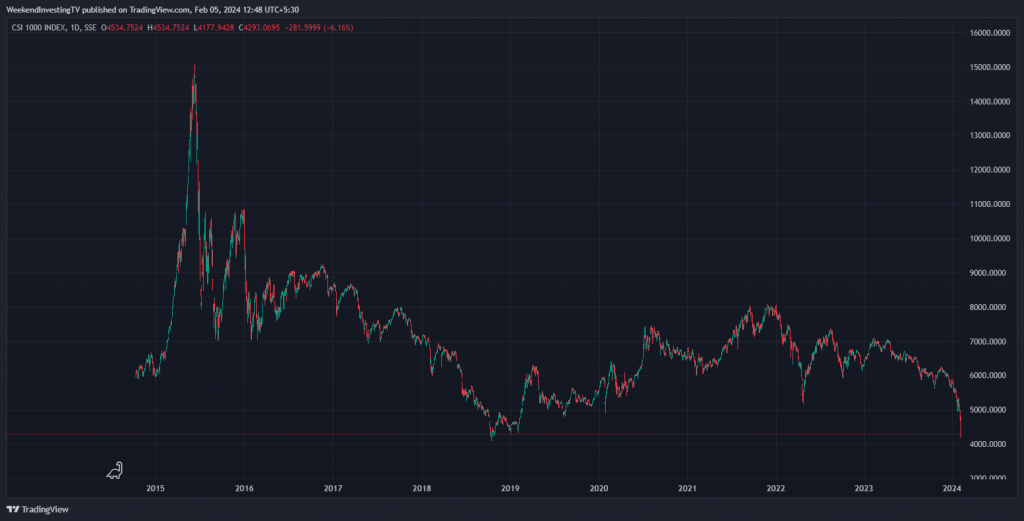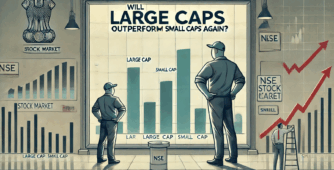As an investor, it is common to rely on financial indicators such as earnings, market share, and product performance to make investment decisions. After all, these factors provide valuable insights into a company’s potential profitability and growth. However, it is important to remember that relying solely on these indicators may not always provide an accurate reflection of a stock’s performance.
I recently came across an intriguing chart that shed light on the disconnect between company performance and stock performance. The chart showcased the CSI 1000 index, a Chinese index comprising small-cap stocks. It revealed a significant decline of about 66% from the index’s peak, signalling a troubling trend.

The index had surged from 6,000 to nearly 15,000 during a period when China’s economic engine was running aggressively. But, to everyone’s surprise, it later crashed to 4,000 and experienced further volatility post-COVID. This raises questions about the relationship between a company’s financial health and its stock performance.
While companies may continue to exhibit satisfactory earnings growth and an increasing market share, these factors may not translate into positive stock performance. The phenomenon can be attributed to the overvaluation of stocks, leading to the exhaustion of future earnings discounting. This trend can be observed not only in Chinese stocks but also in Hong Kong chart stocks.
This leads us to ponder whether a similar scenario could unfold in India. Imagine a situation where companies in India are performing exceptionally well, and all the forecasts indicate a promising future. However, if stock prices are already sitting at high valuations, such as 60, 80, or even 90 times earnings, the potential for further stock price appreciation may be limited.
The correlation between earnings growth and stock price appreciation is not always straightforward. It is imperative to break free from the notion that positive earnings growth must be immediately reflected in stock prices. This correlation may not hold true if stock prices have already factored in anticipated earnings growth over the next five years. In such cases, companies may declare impressive earnings, but the stock price fails to move in tandem.
To illustrate this point, let’s consider top FMCG (Fast-Moving Consumer Goods) stocks like HUL (Hindustan Unilever), known for their robust earnings. These stocks may continue their growth trajectory over the next five years, but investors may not witness a significant change in stock prices. The reason being that the market had already priced in the anticipated growth, eliminating the potential for further appreciation.
This trend is not limited to FMCG stocks alone. Even in the case of HDFC Bank, where financial results have been reasonable, the stock price has declined due to high expectations already priced into the market. Therefore, it is essential to break down investment decisions and go beyond earnings, market share, and narratives surrounding a company. Instead, investors should focus on the price of the stock as a guiding force.
If the stock price is signalling an upward trend, it may be an opportune moment to consider buying. On the other hand, if the stock price is declining, it is crucial to pay attention to this indication from the market, irrespective of the company’s earnings, market share, or growth potential. By aligning investment decisions with the price trend, investors can make more informed and objective choices.

If you have any questions, please write to support@weekendinvesting.com









